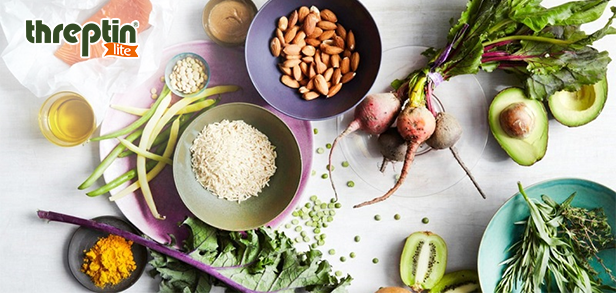
Protein would be important within the human system since it is the key component of cells. Proteins may also be used as a source of energy throughout our daily lives. Protein bioavailability refers to how much proteins are useable in our bodies. Any protein is considered highly bioavailable when it is simple to digest, take, and transform into some other less difficult necessary proteins.
Including enough protein within our diet helps our general health. It helps the body build and develop by improving immunity, preserving cell structure, acting as a mediator in numerous chemical processes, regulating hormones, keeping system structure, and promoting general growth and maturation. Protein may be obtained from both plants plus animals. Which option is superior is extremely controversial.
Twenty vital amino acids have been required for protein formation. Nine of those twenty cannot be produced by our system on its own. Those amino acids have been referred to as necessary amino acids.
Animal proteins often include all nine necessary amino acids and are hence referred to as complete protein providers.
Several plant proteins represent full protein sources as well, although many are not. However, combining those inadequate plant proteins can meet our body’s needs. This would be the Protein guide for everyone.
What exactly seems to be Plant-Based Protein?
Plant protein is protein present within plant products. Protein has been found in all entire plant diets; however certain plants have larger quantities than others. Increased protein plant foodstuffs include beans (chickpeas, black beans, lentils, soy as well as soy derivatives, etcetera.), nuts, plus seeds. Healthy grains include a considerable quantity of protein as well. Fruits and veggies normally have the lowest quantity of protein, although there are some veggies that have a greater protein content.
With the emergence of faux meat alternatives (for example, beef-free burgers, mimic chicken, and so on), the phrase plant-based proteins have begun to be utilized equally with such food items. Because the protein within those products has been derived from trees, the term “plant protein” is appropriate. Remember that complete plant meals include protein as well (And that protein for faux meat items is derived from entire plants).
What exactly seems to be animal protein?
Taking proteins from animal sources has been referred to as eating animal protein. While most individuals consider of proteins, they picture about meat and dairy products. For instance, any meat, fishes, or seafood, as well as dairy (milk, butter, yoghurt, and so on) plus eggs are animal food rich in protein.
The association of proteins with animal items is well engrained in our culture. Several individuals believe that protein can only be obtained in animal items and that it is essential for living.
The most often asked question concerning plant-based, meat free, as well as vegetarian diets are, “Where do folks obtain their protein?” While answering this question might be time-consuming, when you’ve never read about plant-based proteins, you have every right to be worried.
If you exclude the best protein supplements in India from your eating plan, it might be difficult to acquire enough quantities of this critical component without understanding wherever plant-based proteins come from.
Plant-based proteins do have the following advantages
People do not ingest specific nutrients; rather, they take the entire food. When humans consume plant-based proteins, particularly those generated from whole meals, they also obtain additional beneficial components.
Plant-based proteins have the added benefit of containing fibre. Many individuals find it difficult to ingest enough fibre, despite the fact that it is important for optimal health. Another simple strategy to boost fibre consumption is to replace animal proteins (which contain zero fibre) with plant protein sources.
Other advantages of consuming plant-based proteins include:
- It has been linked to a decreased risk of heart disease.
- It has been linked to a lower risk of some forms of cancer.
- It seems to be effective for weight loss.
Plant-based protein includes most of the identical minerals as well as other important elements like animal proteins, such as zinc plus iron (despite the fact that there are a few absorption concerns to be cautious about).
Many plant-based compounds also include omega-3 fatty acids (walnuts, chia or hemp or ground flax beans, soybeans) plus calcium (tofu). Additionally these are richest source of plant protein.
Describing how animals’ protein benefits people of all ages
Proteins are the fundamental building elements of life. Among the most significant advantages of animals protein would be that this can supply your body with most of the necessary proteins. Our bodies do not spontaneously manufacture vital proteins. Animals proteins are essential since plant proteins, while healthful, are not rich in proteins.
Animals’ protein products, such as meat, eggs, and dairy, constitute premium quality protein sources with protein consistency comparable to those found in human bodies. As a result, they are complete proteins.
A well-balanced animal protein meal in youngsters prepares them for the better future. This frequently minimizes the hazards of weakened bones as well as amino acid deficiency. Animal protein diets provide a solid basis for young bodies.
Another of the primary distinctions among plant protein versus animal protein is the basic amino acid concentration.
Conclusion
Many individuals examine a variety of factors when deciding among animal and vegetable proteins. Instead of concentrating on a particular kind of protein, this may be more beneficial to consume a diverse range of meals. This can assist to guarantee that any person receives a healthy mix of amino acids as well as other essential nutrients. Anyone who has particular issues regarding protein needs and sources must consult a nutritionist.



